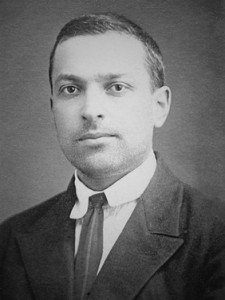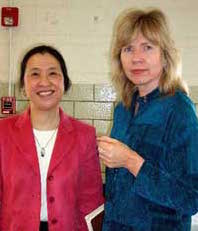History
Transforming early childhood teaching and learning for almost a quarter of a century, Tools of the Mind is rooted in Vygotskian theory and informed by cutting-edge neuroscience research.
The Tools of the Mind curriculum began in 1993, when Dr. Elena Bodrova and Dr. Deborah Leong began working together in early childhood classrooms to improve children’s ability to learn, and teach educators new techniques for working with children.
Dr. Bodrova came to the United States from Russia, where she studied with students and colleagues of Russian psychologist Lev Vygotsky, and applied Vygotskian-based teaching methods in preschool and kindergarten classrooms. The concept of “tools of the mind” comes from Vygotsky, who believed that just as physical tools extend our physical abilities, mental tools extend our mental abilities, enabling us to solve problems and create solutions in the modern world. When applied to children, this means that to successfully function in school and beyond, children need to learn more than a set of facts and skills. They need to master a set of mental tools—tools of the mind.

According to Vygotsky, until children learn to use mental tools, their learning is largely controlled by the environment; they attend only to the things that are brightest or loudest, and they can remember something only if has been repeated many times. After children master mental tools, they become in charge of their own learning by attending and remembering in an intentional and purposeful way. In the same way that using certain mental tools can transform children’s cognitive behaviors, using other mental tools can transform their physical, social, and emotional behaviors. Children become “masters of their own behavior.” As children are taught and practice an increasing number of mental tools, they transform not only their external behaviors, but also their minds.
The first priority of Drs. Leong and Bodrova was to create Vygotskian-based instructional strategies that would work in U.S. classrooms, which have different cultural demands than those in Russia. They designed activities with a consistent theoretical framework and internal logic to create a coherent comprehensive curriculum and approach to teaching and learning.
In 1996, Drs. Bodrova and Leong collaborated on a book, Tools of the Mind: The Vygotskian Approach to Early Childhood Education. Today this book is recognized as a classic for its down-to-earth explanation of the Vygotskian approach and how it can be applied in classrooms. The second edition was published in 2007, and has been translated into several languages.

Tools of the Mind has been the subject of numerous research studies, ranging from single district evaluations to multi-site, nation-wide implementations. In 2001, Tools was named an “exemplary educational intervention” by the International Bureau of Education, a UNESCO program. The November 30, 2007 issue of Science Magazine presented the results of research on cognitive control from a study conducted in Tools of the Mind classrooms by the National Institute for Early Education Research. In 2012, Tools of the Mind was included in the 2013 CASEL Guide to Effective Social and Emotional Learning Programs. A research article published by PLOS ONE in 2014 presented findings that Tools of the Mind Kindergarten program had a positive effect on executive functions, reasoning ability, the control of attention and improvements in reading, vocabulary and mathematics at the end of kindergarten that increased into first grade.
We credit the successes in Tools of the Mind classrooms to the fact that instruction in these classrooms is based on a comprehensive theory of learning and development—the Vygotskian approach.
Formerly administered out of the Center for the Improvement of Early Learning at the Metropolitan State University of Denver, the program now operates as an independent 501(c)(3) non-profit organization.